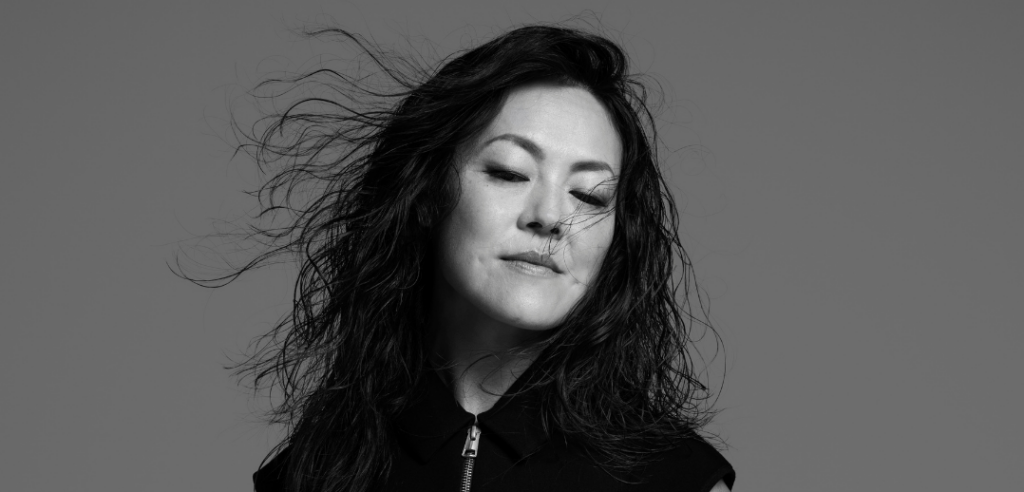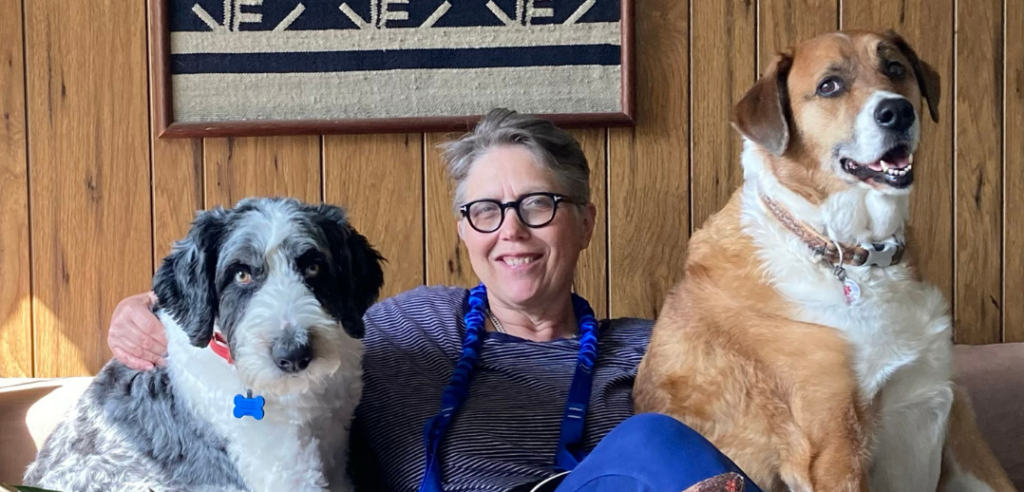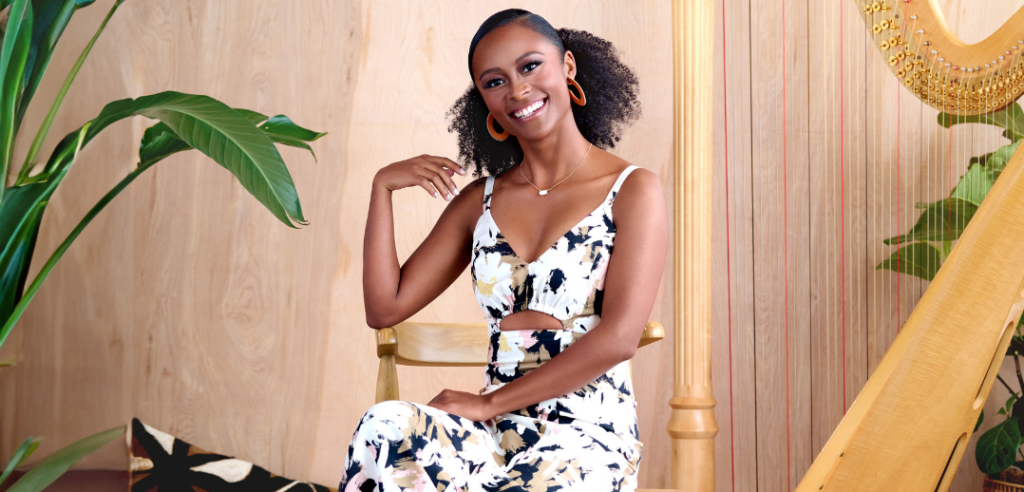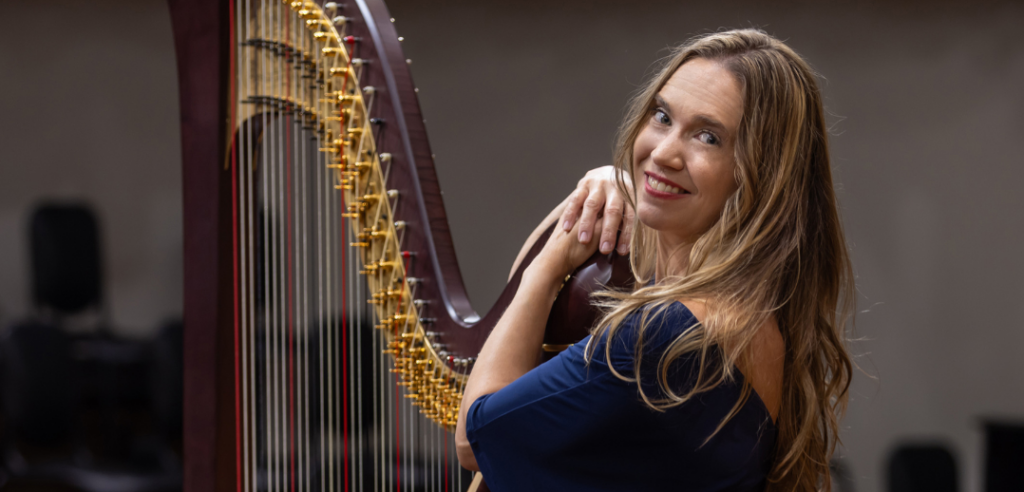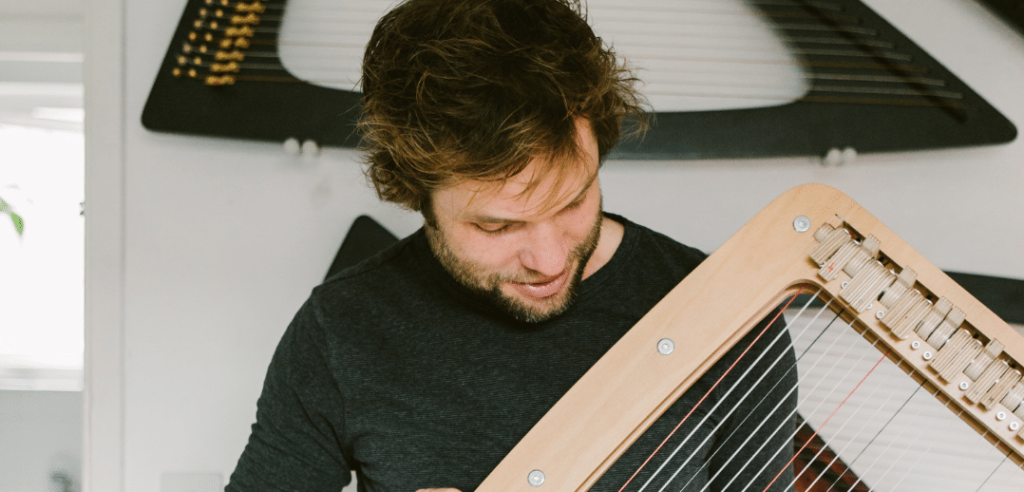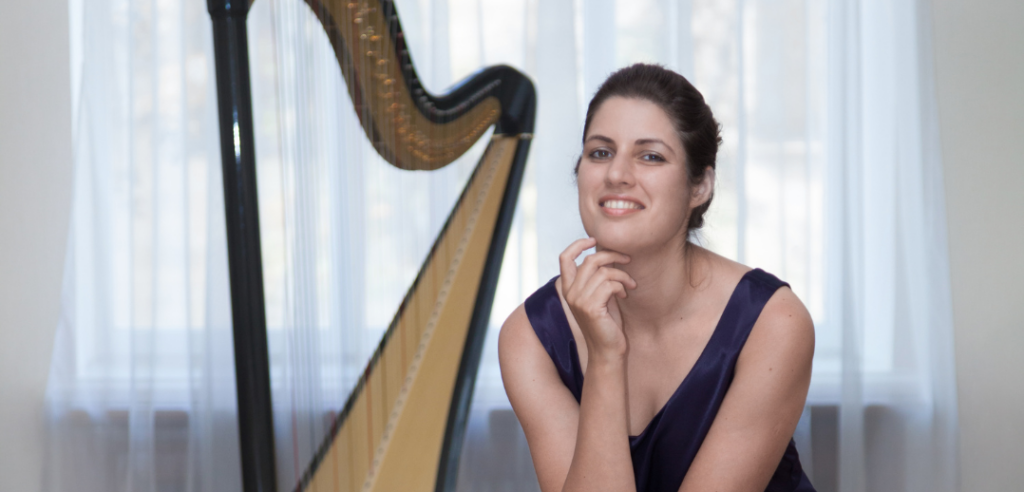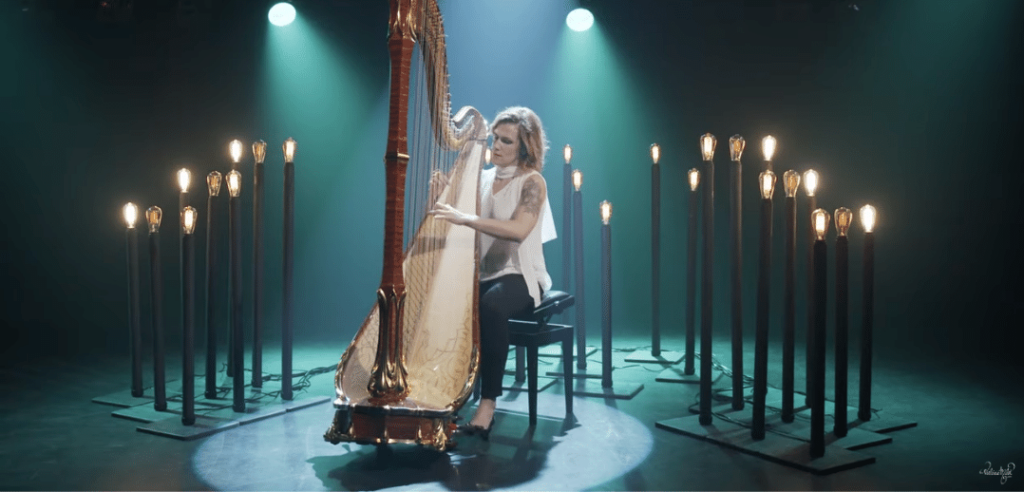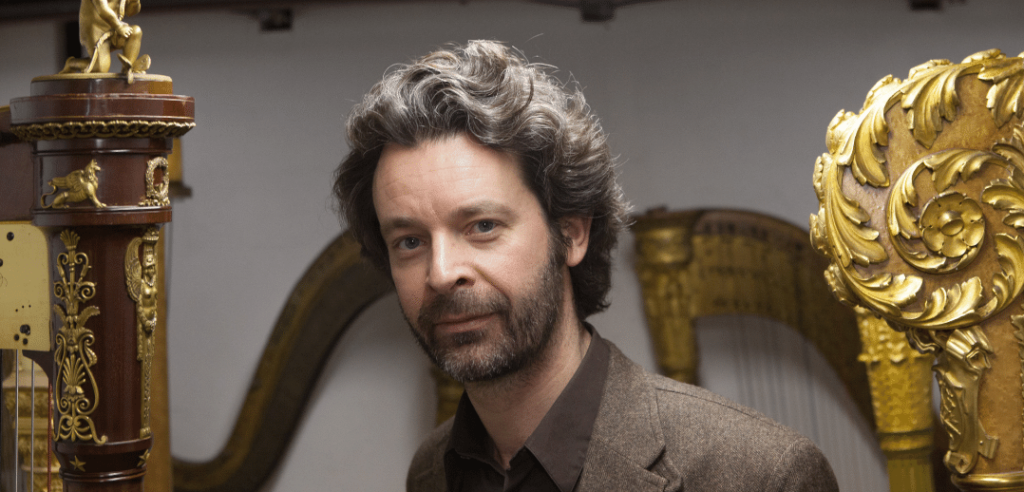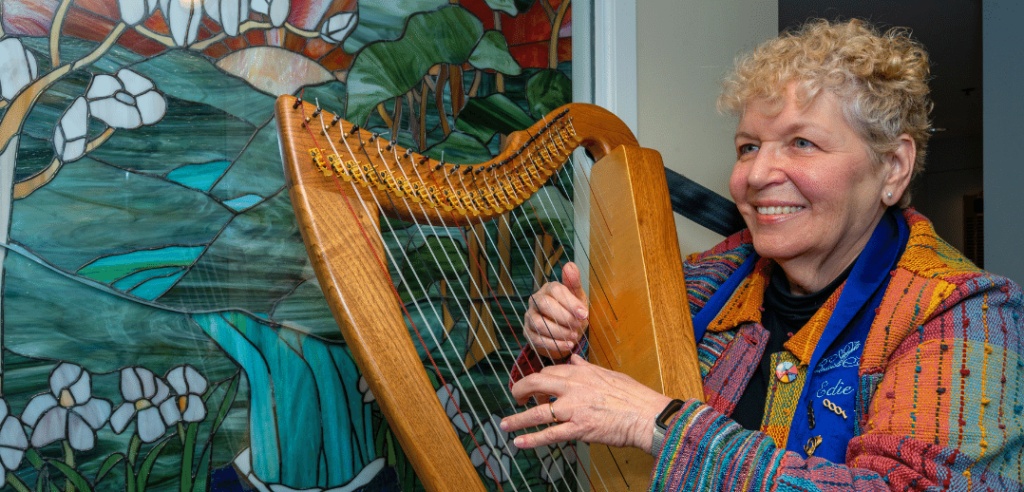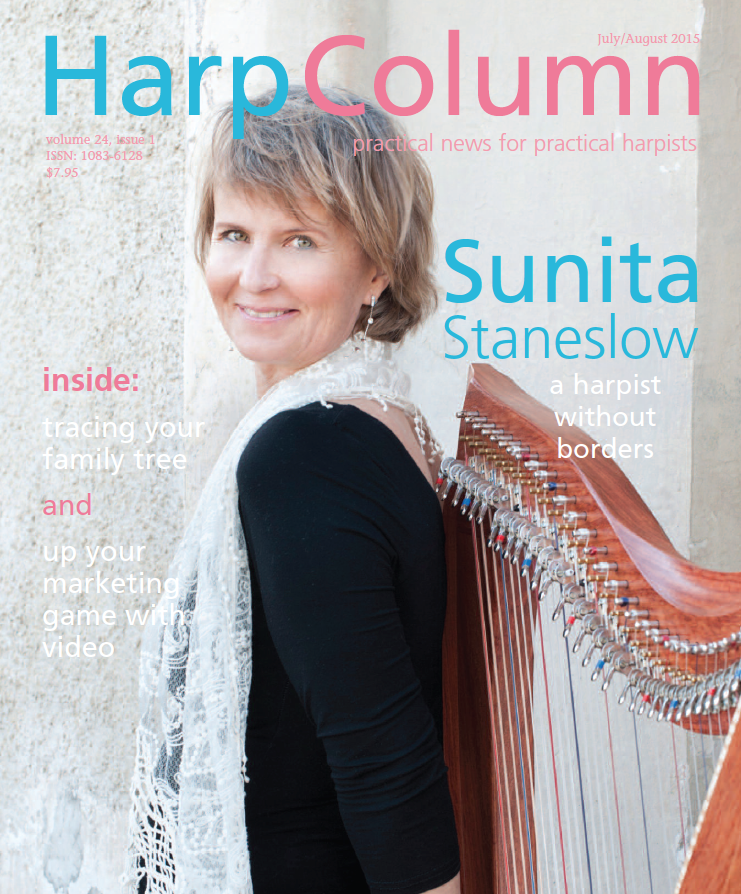
Madonna. Prince. Cher. Beyoncé.
The pop music world has a handful of stars that need only a single name to be universally recognized.
The harp world has one. Sunita.
Sunita (Staneslow, if you really need to know her last name) has the one-of-a-kind personality and career befitting of a single-name performer. This Minnesota-raisedharpist with a Bengali first name and a Lithuanian surname makes her home in Israel. Sunita is equally at home busking in the town square or performing a concert with a chamber music partner. She is in demand at harp conferences all over the world for her teaching and performing and spends several days each week working with patients at a local children’s hospital. For the last 15 years Sunita has been Harp Column’s eyes and ears at the prestigious International Harp Competition in Israel. How does someone build such a successful and versatile career? We asked Sunita when we talked to her via Skype from her kitchen in her home, just outside Tel Aviv.
Harp Column: We want to fill in our readers on your background and your training, because what fascinates me about you is that if there’s a script for a classically trained harpist, you kind of rewrote it, and you’ve really charted your own path.
Sunita Staneslow: I grew up in the suburbs of St. Paul. My parents were professionals. My mom was a teacher, my dad was a professor at the university—he taught Hindi. People always ask me, where did you get that name? Sunita is an Indian name. I was in second grade and I can remember having dinner over at a neighbor’s house down the street. She played the flute with the Minnesota Orchestra, and I remember thinking, “I want to play the flute.” They took out the flute and said that my fingers were too small and arms too short and I would have to wait. So then the flutist said, “Why don’t you play harp like my daughter Leah.” So then I told my mom, “I want to play the harp like Leah.” My mom said, “Yeah right, you’ll get over it.” But I said, “No, I really want to play the harp.” So finally she agreed to get me a few lessons, thinking I’d get over it, but I didn’t. It started to feel fun and special because flute’s just melody for the most part and harp has melody and chords and this beautiful sound. It was good because I have good classical and technical background that has served me well.
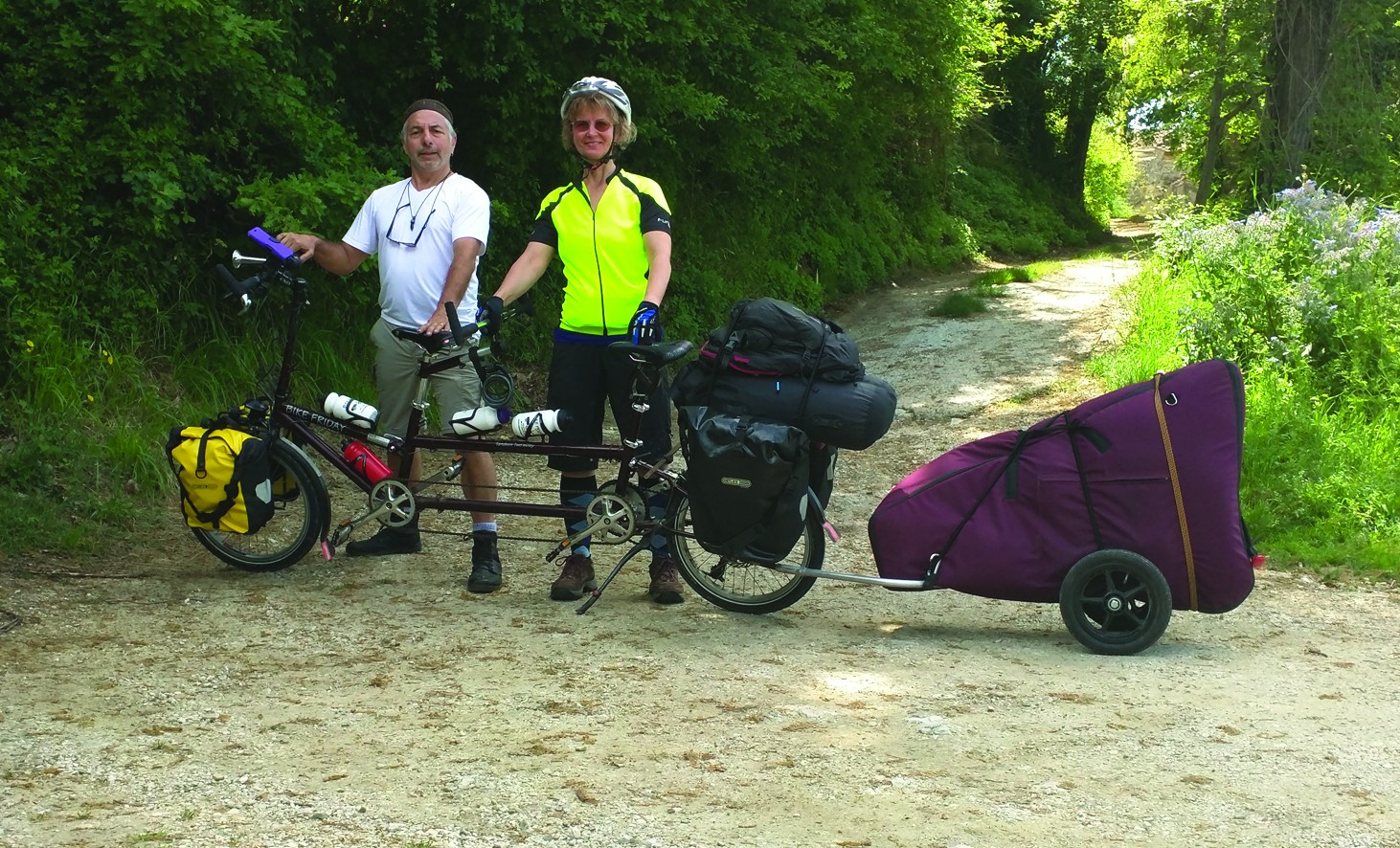
HC: Who did you study with?
SS: I’m very grateful for the teachers I’ve had. You know, I’ve had very classical teachers, and many different ones—Lucile Lawrence, Judith Liber, Frances Miller, Lynne Aspnes, Lily Laskine. I had great teachers, and I am the musician I am today because I had good teachers. You can’t take a shortcut from that; I spent years honing my craft. Everything I’ve done in my career, I was able to do because I took many of years of lessons.
HC: How did you end up in Israel?
SS: I grew up in the Twin Cities but when it came time for college I was interested in international and third-world development, sociology, and harp. Where do you go for everything? I ended up going to Tufts University, which is phenomenal for international relations, and I studied with Lucile Lawrence at Boston University. But then I didn’t know what to do when I graduated. What you’d love to do versus what job you have can be very different, so I decided to take time off and experience both harp and international relations and then go to grad school. I lived in this grass hut in the middle of Sri Lanka and I was part of a team with a doctor and a nurse and me, and Sunita is also a Sri Lankan name, so I had this normal name and they treated me so differently. I was like a real person. So I had this amazing experience. Then I came to Israel to study with Judith Liber, and it was great timing. The harpist from the Jerusalem Symphony went on maternity leave, there weren’t many people to audition, so it wasn’t like I was really great, but I got the job. I subbed in the Jerusalem Symphony, and this is where the shift began for me musically.
Find what you love. Play music you love. Play with people you love. I started playing music I really felt passionate about, so I became a better musician.
HC: How so?
SS: Because I was just going straight classical and then I get to Israel and ended up renting a room in an apartment with musicians and artists that was right over the central park of Jerusalem where they have jam sessions until three in the morning, and they have klezmer music and Latin music. I am with my harp saying, now where’s my part? Where’s my music? It was so humbling to be this classical musician who is so tied to notes that I couldn’t just do music. That was an epiphany for me—how did I miss out on this that I don’t just sit down and play? I mean, I did everything right, everything my teachers told me to do, except to practice more maybe. [Laughs]
HC: Did this lead you into doing more arranging?
SS: Well, people would call me up saying, I need to play something for a Jewish wedding. So I would arrange something and send it to them, and my husband said, “Why don’t you start publishing these? Why are you doing all this work and just handing out your arrangements?” At that time, there weren’t many harp arrangements out there. Now I’m inspired a lot by people like Kim Robertson, Deborah Henson-Conant, or Laura Zaerr who are doing original composing for the harp. I feel like I’m following in their footsteps. They opened the door so I could listen and be more creative and arrange music.
HC: How does your career today compare with the career you thought you’d have when you were starting out?
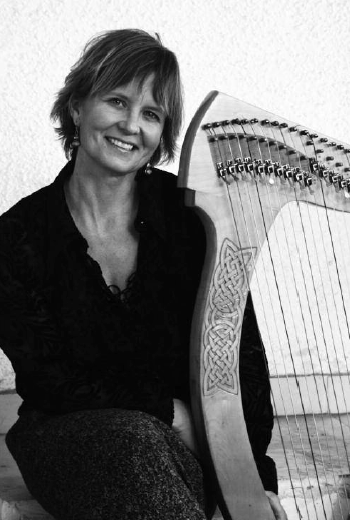
collections of her arrangements of Celtic, sacred, and Jewish music
published by Afghan Press and Mel Bay. You can read more about Sunita at
www.sunitaharp.com.
SS: I love my life. I’m glad it happened the way it happened—learning skills out of necessity. My life evolved and I took my chances, I guess. I do a lot of regular stuff. I teach, I play background music. I learned I can still be a harpist and not have this full-time job for an orchestra because I’m versatile. I can do studio work, I can read music for it, I can also say, let’s rearrange it this way, it will be more effective for harp. Or I can do all the regular classical background music other people do, and I can do other stuff. So that’s what keeps me being a full-time harpist because frankly it’s not so easy, you know, if I just did weddings or if I just did classical orchestral work, I don’t know if I’d still be a harpist.
HC: Being such a versatile musician, I know your schedule can vary widely day to day. What is a typical day like for you?
SS: Monday was crazy. I work at Schneider Children’s Hospital. I’ve been the harpist there at the children’s hospital for almost seven years now. So I was there all morning and then came home, switched harps, and drove to Jerusalem for a wedding, and then came back and I had a rehearsal and figured out stuff. So some days are non-stop and it’s actually very nice. This morning I walked my dogs to the Arab Jewish community center where they have music and sports. I want to start a harp program there, so I talked to the musical director. And so I’m very excited about what I did today because it’s like to me another step on the road to my bike trip. I’m going on this bike trip across Europe, and my husband and I decided to raise money while we go to hopefully get some small harps to start this harp program—Arabs and Jews and the whole community use this community center. But it’s like everywhere else, it’s not like there is money for harps. So it’s just the beginning of this process.
HC: Tell us more about your work with therapeutic harp playing. Are you on staff at the children’s hospital?
SS: I’m paid, but not on hospital staff. I work through the education department, and there are artists doing really some interesting kinds of therapies through non-profit sections of the hospital. So I’m a freelancer, but I work there every Monday from 9 a.m. to 2:30 p.m.
HC: What does your work day at the hospital look like?
SS: It has sort of evolved. When I started about seven years ago, harp was just this new idea, and now I have a whole system. So I’ll tell you what my typical day is now. I start by giving a private lesson to a patient I’ve been teaching in the eating disorders unit. Then I go up to oncology where they have harps. Hugs for Israel, which is a Christian non-profit that does a lot of things for Israel, donated money for a harp. My boss is really smart, and she convinced them to get five smaller harps rather than one expensive harp. So we have five harps, and in fact, we just got funding for more. So I have a 36-string carbon fiber harp that I got seven years ago from Heartland. I like the idea of using a bigger harp and it’s light and sterile—I bathe it in these sterile wipes that they want me to use. Then I play with the kids. Sometimes in the more serious oncology, I tell them I’m a portable spa. So maybe I’m helping them fall asleep. If I give music, it kind of makes everything feel more special and sacred. In Israel everything is noisy, so the hospitals are very noisy and it creates this more comfortable space and time for them. I’m able to do things with them on the harp, like I tell them to play all the red and blue strings and then I’ll improvise in the key of F, or I’ll get them to play a descending bass line and I’ll play with them. We do things anybody can just pick up, and instantly they just feel, “Wow, I played the harp.” So it’s not serious harp lessons, but it’s empowering whereas if you put a guitar in their hands it doesn’t really work. Harp really works well for oncology. Then I go down to cardiology. After that I just go straight to surgery. Surgery is a really mixed bag because sometimes they are in a lot of pain and so they need a distraction, but sometimes they’re just really bored, they just had surgery on their toe and they’re just stuck there and want to do something. It’s different every time. Then I go down to the psych unit—they want me because I’m not a musical therapist—I’m their music teacher once a week. Sometimes we’re going to YouTube and listening to tunes they like, sometimes I teach them a chord on the guitar or they learn harp or we sing or we talk about music. Because I’m not a therapist, I don’t have to write all about it, I don’t have to go to the staff meetings, all that stuff that a music therapist would have to do, so I really like not being a music therapist, but I work in conjunction with the music therapists, so I feel it’s really unique.
HC: So how is what you do different from a music therapist?
SS: I just came from Christina Tourin’s International Harp Therapy conference in San Diego, and there’s this whole tension. Are we taking jobs from music therapists? Do they like us? Do they understand us? And there are a lot of harp therapists that aren’t very good, and some that are really phenomenal. I was basically hired by the education department and by a music therapist. And I get paid the same as a music therapist because I have a master’s, (you get paid in the hospital by your level of education,) but we work together. For instance, there’s a unit I don’t usually go to, but a music therapist said, “Look, there’s a religious woman in there that wants to sing to her kid, and I’m a guy, she doesn’t want me, we need you there.” Or there’s a kid in a coma, and they’re not going to bring in their drums and guitars and everything. They’ll say, go play for this person. I love doing therapeutic work with the harp, but also because I’m at a phenomenal hospital, and I work with really great people with great attitudes and who are really professional.
HC: I want to know how you got into this work. I know you’re not a music therapist, but what do you consider yourself?
SS: I consider myself a therapeutic musician. I say that I change the air and just relax everybody. It’s related to the bigger picture of healing. If you can help a patient sleep longer, eat more, and lower their stress hormones, then you’re part of this bigger picture that makes the hospital a better place than just this high-tension-here’s-your-antibiotics place. And so the idea of the children’s hospital is to make the kids feel that they are kids, and not just patients. And the more that they can feel strong or happy or human, then they are going to be healthier, their parents are going to be happier, they are going to be able to talk to their parents better, and the whole system works better. So I’m not a therapist, and I’m not a healer, but I’m part of the bigger picture. I’m not a jukebox. I’m not there to necessarily entertain them, although sometimes it becomes that. Also because the King David connection is so strong here, you know. King David played for Saul and it calmed him, so everyone makes this connection.
HC: What skills do you think are most important in your work in the hospital, musical or otherwise? What skills do you find yourself needing the most?
SS: To me it boils down to two really important skills—reading the mood of the parents or their kids and being able to improvise. Because there’s always these things like, do you want harp, and the kid says no, no, no but the parent says yes, yes, yes. In reading the dynamics or the undercurrent in the room, I rely heavily on my life experience. I know you can be trained in these things, but there’s something about just being older, being a mom, that is stronger than remembering in chapter four that you do this or whatever. With improvising, I feel like I’ve spent my whole life trying to be a better and deeper musician. I can breathe, I can slow down, I have good tone, I can control what I play. So I’m not one of these harpists that has 100 tunes and I whip them out. I lay a blanket of sound, and it takes all of my skill. I feel like I’ve played my harp forever, but when there’s clanging and noise and somebody is going to puke, to calm the room it takes my musical skill that took years to develop. And I think that’s one of the biggest problems with therapeutic harp programs. People learn the control and how to really be deeply musical at different paces. Some people may be deeply musical all their lives, so their sense of timing and phrasing comes naturally, and other people, they focus on something completely differently and to understand rhythm or control rhythm and coordinate their hands can take years and years. Yet they take these courses and graduate at this same time period, and so you get this wide spectrum of how musical they are. The harp is this beautiful, but often clunky instrument. We can’t adjust the timing or intonation like a bowed instrument. I feel like I use my musical skills that have taken a lifetime to develop, in the hospital even though I’m playing simple stuff.
HC: Yes, it’s important to understand the time it takes some people to have that deep understanding and skill to control it.
SS: I’m glad I took the [harp therapy] courses because they made me think less about me and me controlling time and more about being aware of them and their needs. So the courses really helped me. I don’t want to negate the courses, I just want to emphasize that I rely so much on years and years of being a musician.
HC: In all the different facets of your career, what do you find to be the most gratifying, the most fulfilling aspects of being a musician?
SS: So maybe two things. I like working with other musicians. I’ve had different ensembles over the years. Right now I’m working a lot more with this exotic wind player, and that sense of creativity, of really honing down and rehearsing sound, music, and art. You’re working on arrangements, finding tunes, honing down your art in a whole creative way, and that is satisfying to me. I also love giving workshops, and I never would have thought that. I love creating these workshops on thinking outside of the box. So I guess the things I love most are all related to being creative.
HC: I’m curious, as someone who has honed this versatile skill set to a high level and carved out a career you enjoy, what advice do you have for young harpists who want to make a living playing their instrument?
SS: Find what you love. Play music you love. Play with people you love. I started playing music I really felt passionate about, so I became a better musician. But at the same time you have to be much smarter about marketing yourself. Certainly it’s all changing now. I mean, I became a harpist at the time when you referred the only other harpist in town for the work, and now it’s different. So make yourself unique but you can’t skimp on the basics—reading music well, improvising, adapting easily to any situation. I think some people think, “Well, if I just practice four hours a day then I’ll be a better harpist.” Maybe you’re a better technician, but it doesn’t mean you can adapt when the music stand blows over. You need to know basic elements of arranging and improvising or I think you’re left out of the game now. Also I think you have to record more, be more present on YouTube, and be willing to let the customer be the boss a little bit. They’re hiring you, and even if they’re saying something really ridiculous, you’re going to learn to do many different things. So understanding the business side of music and doing what makes your customer happy is also good experience. I’ve played in so many different kinds of situations that I feel like I’m a better performer when it counts now because I’ve played in every bad situation imaginable. Be willing to take opportunities when they arise and be flexible.
People want a magic wand that they can wave and suddenly play well in three years, but the reality is that the harp takes a lot of time…so I try to encourage people to enjoy the journey, to enjoy the music.
HC: Do you think that the classical musician script we talked about earlier is outdated?
SS: I think there’s still some denial in the harp world about learning all these classical pieces and not having a job at the end. You may play for a certain recital and have a concert series but that doesn’t mean you have work for the next month. I think there’s less of this in the folk harp world, but the [job market] is changing and so just keep your eyes open to what it means to be a harpist. Don’t think of it as a failure if you decide to be the director of a music school and also play the harp.
HC: Right. You seem to be everywhere—festivals, conferences, competitions—presenting workshops. It seems like you probably have a pretty good sense of what harpists out there want to do with the harp and are curious about. So I’m curious what you think harpists want today.
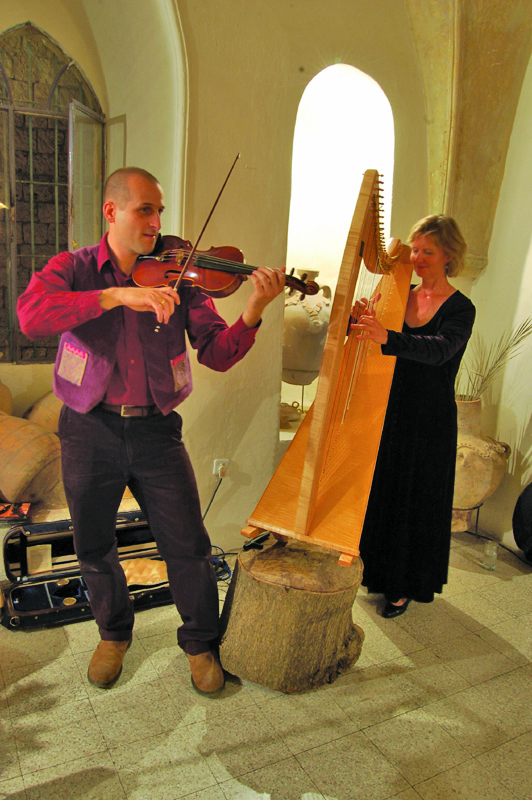
SS: What they want to learn and should learn are maybe two different things. I mean, they want to learn how to play everything right away, and I think that what they need to do is maybe learn to play less but learn to play better. There’s a smorgasbord of classes you can take at these harp festivals, and it’s exciting. But it’s not really this deep learning that only comes from time. It’s just a teaser instead of opening your mind about how to work and how to think and how to get inspired and grow. People want a magic wand that they can wave and suddenly play really well in three years, but the reality is that the harp takes a lot of time. It’s a big coordination issue, and I think adults, especially, get very frustrated. They have a Ph.D. and they’ve raised kids and their fingers are uncoordinated. And they want coordinated fingers—pretty basic things I think that we all want. Learning to play the harp is this journey. It’s not like you get your law degree and you’re at the top of your game. We’re all sharing the same journey, and I think it’s a humbling journey sometimes for people because they have this harp in their living room and they don’t have time to practice it and it’s been five years and they should really play and they don’t necessarily. I think people go to these workshops for inspiration they can take home, so I try to encourage people to enjoy the journey, to enjoy the music.
HC: When I told you we wanted to interview you, you said you hoped it wasn’t a career retrospective because you feel like you’re just now starting to blossom in your career. But you’ve been doing really interesting work for a long time, so I’m curious, what do you see next for you as a musician?
SS: I want to record more and arrange more. I want to be able to play by ear better. I want to develop my ear in a deeper way. I want to be more improvisatory and spontaneous and further develop my Celtic music. I feel like now I’m able to take more of these projects that are iffy money but are really creative because I’ve built up my career enough. So that’s how I feel like I’m blossoming. I’m doing even more of the music I want to do.
HC: You do a lot of volunteer work too, right?
SS: Yes, right now I teach this blind person harp lessons in the middle of the West Bank. I do a lot of volunteer work which has helped me break the barrier of going into the West Bank and being in a village that I would never go to as a Jew or Israeli, so the harp has opened doors. My international relations major and music all kind of came full circle in a sense. Doors opened for me and I was willing to take the next step. I think there are these doors that open for us, and often they don’t seem lucrative or seem a little strange, but they can lead to something completely different if we’re not afraid to take risks with music. That’s certainly helped me with my life. •






